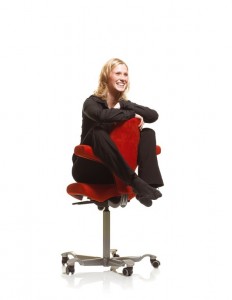-
Psychology and Posture – How this may determine the Best Chair for You
Whenever I am meeting with a client to discuss which may be the best office chair for them, I always try to ascertain what ‘type’ of person they are. Without prying too much, it is important to get a sense of their personality traits and their psychology when working. This can have an enormous effect on their posture throughout the day and can affect the type of chair that I recommend to them.
For instance, are they active people? Do they fidget through inactivity and are they always trying to escape the confines of the desk? Or are they quite happy to sit in one place for hours on end, their fingers slowly melting into the keyboard and the cursor burning into their retina?
In Wikipedia (https://en.wikipedia.org/wiki/Posture_(psychology) ) they also cite studies that show the way that body posture itself can affect emotions: “Mood influences muscle tone, energy level, and one’s internal sense of well-being. Thus, body posture can reveal a person’s current state of mind”. And vice-versa!
It may seem strange to think about these things, but there are so many different types of person, and ways of sitting (or not!), that we can’t simply Google ‘best ergonomic office chair’ and expect to find the chair that will solve all our problems! Sure, there are some very good office chairs on the market that will suit a vast range of people, such as the RH Logic (http://www.rhchairs.co.uk/) for example, but we are always going to find a group of people that need something different. And that is why companies such as Shape Posture Seating exist today. If we were to fit out everyone in a large company with the most expensive ergonomic chair money could buy, there would always be people who would still not be comfortable, and for reasons other than the common ailments such as lower back pain. Ergonomic companies need to be aware of the psychology of their customers. Their well-being will certainly be affected by the products you suggest.





